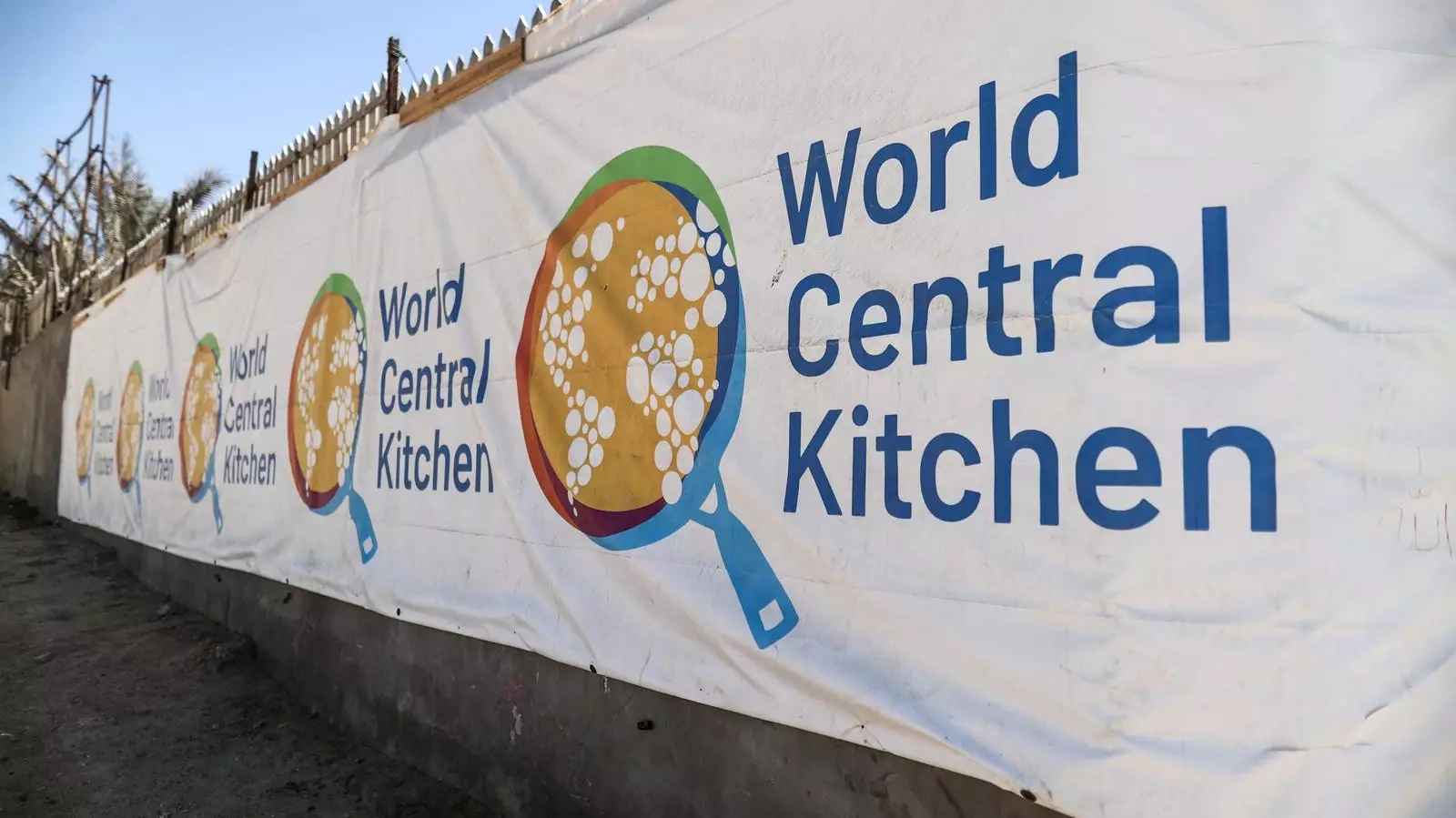In the southern Gazan city of Deir al-Balah, World Central Kitchen volunteers were delivering much-needed food supplies before a tragic incident took place. The vans filled with rice, flour, legumes, and dates were meant to provide relief to Palestinians facing starvation in a region plagued by conflict and loss. Despite efforts to bring a sense of tradition and comfort during difficult times, seven aid workers lost their lives in a brutal attack. This heartbreaking event sheds light on the dangers faced by those providing humanitarian aid in crisis zones.
The recent attack on a train bound for World Central Kitchen’s operations in Ukraine highlights a disturbing trend of food being used as a tool of warfare. By targeting essential supply chains and obstructing food distribution efforts, perpetrators aim to deepen the suffering of vulnerable populations. The bombing of food convoys and the killing of aid workers not only disrupts vital assistance programs but also instills fear and insecurity among those in need. It is essential to recognize and condemn the weaponization of food in global conflicts.
In response to these devastating events, organizations like World Central Kitchen are advocating for independent investigations and accountability. By calling for justice and transparency, they seek to ensure the safety of humanitarian workers and the effective delivery of aid to those most affected by crises. The international community must come together to address the weaponization of food and uphold the principles of humanitarianism and compassion in times of conflict.
Amidst these challenges, initiatives such as the Food Culture Alliance and independent grocery stores are working to promote food security and resilience in communities. By leveraging food culture and advocating for policies that support local farmers and essential workers, these efforts aim to create sustainable food systems that prioritize access and quality. The need for collaboration and innovation in the food industry is crucial to addressing global food insecurity and building a more equitable future.
The appalling attacks on humanitarian aid workers and the weaponization of food underscore the urgent need for collective action and solidarity in addressing global crises. By recognizing the power of food as both a symbol of comfort and a tool of conflict, we can work towards a more just and compassionate world where access to food is a fundamental human right. Together, we can strive to overcome adversity and build a future where food serves as a source of sustenance and unity rather than division and violence.


Leave a Reply